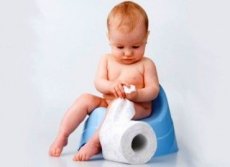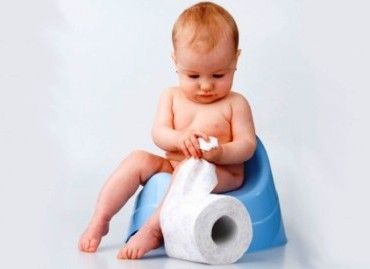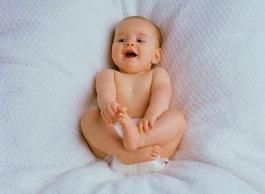Medical expert of the article
New publications
Diarrhea in a child: why and what to do?
Last reviewed: 05.07.2025

All iLive content is medically reviewed or fact checked to ensure as much factual accuracy as possible.
We have strict sourcing guidelines and only link to reputable media sites, academic research institutions and, whenever possible, medically peer reviewed studies. Note that the numbers in parentheses ([1], [2], etc.) are clickable links to these studies.
If you feel that any of our content is inaccurate, out-of-date, or otherwise questionable, please select it and press Ctrl + Enter.

Diarrhea in a child is a cause of great concern for parents. Is it poisoning, infection, too much fatty milk? Small children cannot explain why they cry, so parents must become researchers to understand the reasons for the baby's illness.

What is childhood diarrhea?
Diarrhea, or loose stool in common parlance, is considered a symptom of life-threatening diseases. Diarrhea itself is not dangerous, but the infections that cause it are dangerous, as well as dehydration of the child's body caused by frequent stools. After all, diarrhea is frequent stools.
A baby's stools usually vary in texture, color, and smell. This all depends on what the baby is eating (breast milk, formula, or solids). A baby's stools are usually softer and more watery than an adult's. It is not uncommon for a baby to have very soft stools. However, if the stools suddenly become much more frequent and more watery, it may be diarrhea.
Causes of childhood diarrhea
Diarrhea in children can be caused by many things, from changes in diet to an intestinal infection. Any of the following conditions can cause diarrhea in children.
- An infection caused by a virus, bacteria, or parasites. Children can be exposed to bacteria and viruses that cause diarrhea through contact with contaminated food or water. Or if the child plays on a contaminated surface and then habitually puts his hands in his mouth.
- Food allergy or drug sensitivity
- Excessive consumption of fruit juices
- Poisoning
Why is childhood diarrhea dangerous?
Diarrhea can change the normal balance of water and salts (electrolytes). When a child loses too much water and electrolytes through diarrhea, it can cause dehydration. Dehydration in children can happen very quickly - within a day or two of the onset of diarrhea - and this can be very dangerous, especially for newborns.
Watch for these signs that your child is dehydrated
- Urination occurs less frequently than usual (fewer wet diapers)
- Irritability
- Dry mouth
- No tears when crying
- Unusual drowsiness or lethargy
- A sunken fontanelle on the top of a baby's head
- The skin is not as elastic as usual (it doesn't come back if you pinch it slightly and release it)
Call your doctor immediately if you notice any of the signs of dehydration listed above. Also call your doctor if your baby has diarrhea and is under 6 months of age and has any of the following symptoms:
- Fever with a temperature of 38 degrees Celsius or higher
- Abdominal pain
- Blood or pus in the stool or black, white or red stool
- Lethargy
- Vomit
Who to contact?
Treatment of diarrhea in a child

Doctors usually do not recommend that parents treat small children for diarrhea themselves. The reasons may be different, and the remedies that a parent gives to a child on their own may not help, but may even harm, because time is against. When visiting a clinic, a doctor may prescribe an antibiotic to eliminate a bacterial infection or an antiparasitic drug.
Children with severe diarrhea, dehydration and sometimes need intravenous fluids in the hospital.
Your doctor may recommend that your child take an oral rehydration solution (ORS). This will help replenish the body's fluid and electrolyte balance and prevent dehydration.
If your baby is already on solids, your doctor may recommend switching to soft, starchy foods, such as bananas, applesauce, and rice cereal or oatmeal, until the diarrhea stops. Mothers who are breastfeeding may need to adjust their own diet to avoid any foods that may cause diarrhea in their baby.
Children with diarrhea who are already eating solid foods should avoid anything that might make the diarrhea worse, including:
- Fatty foods
- High Fiber Foods
- Dairy products such as milk and cheese
- Sweets such as cakes, pastries and soda
Diarrhea in a baby caused by a viral or bacterial infection is highly contagious. Wash your hands with warm water and soap every time you change your baby's diapers to prevent the spread of infection. Store fresh diapers in a special clean place and disinfect the place.
Diarrhea in a child is a cause for concern. Therefore, do not hesitate to contact the hospital if you notice this symptom.
Prevention of diarrhea
Frequent hand washing is very important for adults to prevent diarrhea in children. It is especially important to wash your hands before and after eating, after changing diapers, and after using the toilet. Be clean. Keep the bathroom, room, and kitchen clean and thoroughly wash any food you give to your child.


 [
[